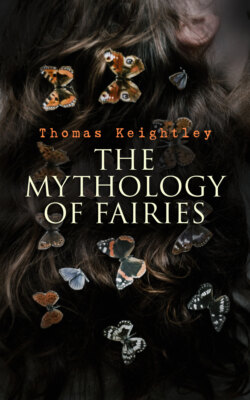Читать книгу The Mythology of Fairies - Thomas Keightley - Страница 15
На сайте Литреса книга снята с продажи.
THE DUERGAR.
ОглавлениеTable of Contents
By ek fur jörth nethan,
A ek, undir stein, stath.
Alvis-Mal.
I dwell the earth beneath,
I possess, under the stone, my seat.
These diminutive beings, dwelling in rocks and hills, and distinguished for their skill in metallurgy, seem to be peculiar to the Gotho-German mythology.107 Perhaps the most probable account of them is, that they are personifications of the subterraneous powers of nature; for it may be again observed, that all the parts of every ancient mythology are but personified powers, attributes, and moral qualities. The Edda thus describes their origin:—
"Then the gods sat on their seats, and held a council, and called to mind how the Duergar had become animated in the clay below in the earth, like maggots in flesh. The Duergar had been first created, and had taken life in Ymir's108 flesh, and were maggots in it, and by the will of the gods they became partakers of human knowledge, and had the likeness of men, and yet they abode in the ground and in stones. Modsogner was the first of them, and then Dyrin."
The Duergar are described as being of low stature, with short legs and long arms, reaching almost down to the ground when they stand erect.109 They are skilful and expert workmen in gold, silver, iron, and the other metals. They form many wonderful and extraordinary things for the Æser, and for mortal heroes, and the arms and armour that come from their forges are not to be paralleled. Yet the gift must be spontaneously bestowed, for misfortune attends those extorted from them by violence.110
In illustration of their character we bring forward the following narratives from the Edda and Sagas. The homely garb in which they are habited, will not, it is hoped, be displeasing to readers of taste. We give as exact a copy as we are able of the originals in all their rudeness. The tales are old, their date unknown, and they therefore demand respect. Yet it is difficult to suppress a smile at finding such familiar, nay almost vulgar terms111 applied to the great supernal powers of nature, as occur in the following tale from the Edda.
